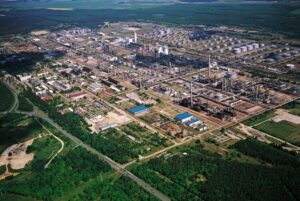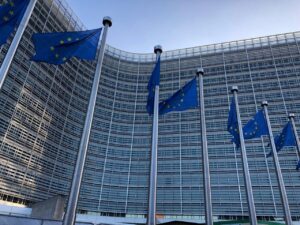To improve the functioning of the EU internal energy market and enhance solidarity between Member States, the Commission today proposed to amend the EU Gas Directive. It includes common rules for gas pipelines entering the European internal gas market, which can help to stop the Nord Stream 2 project.
An integrated gas market is the cornerstone of the EU’s Energy Union and a key priority of the European Commission. In the context of his State of the European Union Speech on 13 September, President Juncker announced that, building upon the solidarity aspect of the Energy Union, the Commission will propose common rules for gas pipelines entering the European internal gas market.The aim of the amendment is to complete the existing Gas Directive (2009/73/EC) and clarify that the core principles of EU energy legislation (third-party access, tariff regulation, ownership unbundling and transparency) will apply to all gas pipelines to and from third countries up to the border of the EU’s jurisdiction. This will ensure that all major pipelines entering the EU territory comply with EU rules, are operated under the same degree of transparency, are accessible to other operators and are operated efficiently.
Once the amendment is adopted by the European Parliament and Council these changes will constitute a significant step towards the completion of the Energy Union.This clarification will also contribute to meeting the goals of the EU gas market, which include increasing competition between gas suppliers and providing a boost to energy security in the EU. Ensuring that all major pipelines wholly or partly located in EU territory are operated efficiently under a regime of transparent regulatory oversight will diminish conflicts of interests between infrastructure operators and gas suppliers, and guarantee non-discriminatory tariff setting.In addition the Commission proposes to allow Member States to be able to grant existing cross-border pipelines certain derogations from the application of the Directive on a case-by-case basis, as long as such derogations are not detrimental for competition or security of supply.
Next steps
The proposed changes need to be agreed by the European Parliament and Council before they become law. The Commission calls on the co-legislators to work closely together to ensure the swift adoption and implementation of these proposals.
Background
The European Union’s dependency on imported natural gas is growing. This trend is likely to continue due to falling domestic gas production while being only partly offset by falling gas demand due to energy efficiency and decarbonisation policies. The share of net gas imports as compared with the EU’s total gas consumption was 69.3% in 2015. The biggest gas importer to the EU is Russia (42% of overall imports in 2016), followed by Norway (34%), Algeria (10%) and imported LNG (14%). In 2016 gas imports were 12% higher than in 2015, driven by higher consumption, lower prices and falling domestic production.
European Comission








